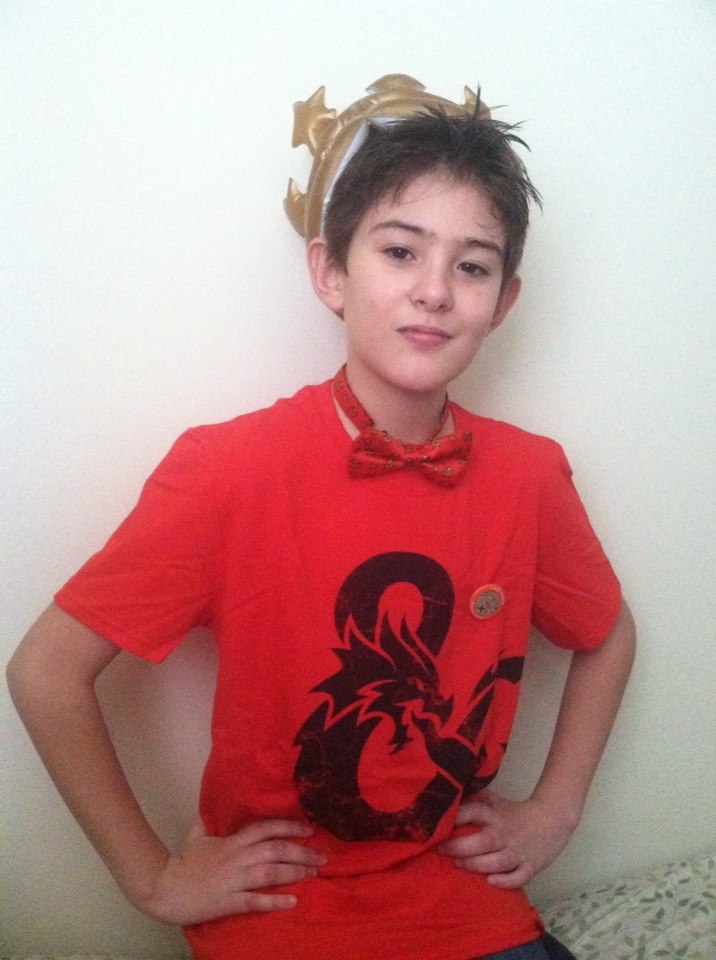
As I'm sure everyone in modern society knows Dr. Seuss' Horton Hears A Who is now a CGI movie. Needless to say having read it MANY times Korban and I went and saw it the day it came out (my sweetheart's b-day March 14th) and we read it again tonight and it got me to thinking about what the meaning behind the story could be. Dr.Seuss' stories, like Mother Goose tales, are political commentary or life lessons masked in the genre of a child's story, also notable is The Wizard of Oz.
Of course Ted (yeah we're that close!) is no longer alive so I can't very well write or email him about what he was trying to say through Horton and the Whos, but something Korban asked me made me start to think and I may have a close idea of what he was trying to tell us.
Near the end of the story, the inhabitants of Noo are all chasing after Horton and Korban asks me, "Mom, why are they all chasing Horton?" And I told him it was something called "mob mentality" and I explained to him that is when a group of people, who would otherwise wouldn't on their own, join together to persecute a person or certain group of people because of what they may believe or look like. He asked me why people would do that and I reminded him of the Holocaust (which we have talked about before) and how one person like Hitler can convince others something is true when it's not.
From this exchange it makes me think that Horton Hears A Who could very well be Ted's take on WWII and what Hitler did. Originally published in 1954, the timing would be correct. A less then a decade after the "end" of the war.
To me it seems that the kangaroo is Hitler. The Who's are the Jewish community. One of the major players is a black eagle named Vlad (the bird of the Nazi's being an eagle and we knew by then about Stalin).
I think Ted is trying to say that one person can turn a peaceful society (The Jungle of Noo) into wild animals (Nazi Regine) when they are told that something innate (The Jewish community) is a threat to their way of life. So it is better to destroy the threat that cannot be seen, heard, or felt, then let even the idea of it exists.
I can't figure out who Horton might be. I would say America because we ultimately "ended" the war, but we were more apart of the jungle. Not chasing after Horton, but looking past it for a long time. Not until Pearl Harbor did we come to help the "Jews/Whos". Maybe Horton is the alliance at any given time. A large force trying to stop the "kangaroo/Hitler" AND save the "Jews/Whos". Or the ultimate force for good, God.
I think the fact that the Jungle of Noo refused to believe that this group of people were being destroyed is a commentary also on the fact that many German's at the time and some to this day (I shouldn't say just German's because it is more then them) believe that the Holocaust never happened! That it was made up! Despite there being proof!
In the story the Whos have to endure many hardships. They suffer a lot of destruction. Yet they band together, looking to a voice in the sky to save them. A force bigger then they are. "We are here! We are here! We are here!"
You also get the message that "A person's a person, no matter how small." I believe Ted is saying as the bible does, that no voice is without out merit. The rain was made to fall on the bond, the free, the just, and the unjust, all are equal in the eyes of God. I have no idea what, if any, faith Ted followed, but I am certain he had some kind of faith in God.
And lastly I like how he ends the tale of Horton hears a Who in that the very SMALLEST voice in Who-ville makes all the difference. That one small Who, Jo-Jo, and his "YOPP" are the salvation of Who-ville and all the Who's!
There are so many examples of just one person making major changes in the world. Gandhi, Martin Luther King Jr., Rosa Parks, Mother Theresa, Desmond Tutu, and many more.
In summation I would say that the moral of the story is, letting someone else think for you is dangerous, just because you can't see, hear, or feel it doesn't mean something isn't there, that no group of people (society) is without it's place in our world, and that every person's voice is meant to be heard and is very powerful!
Theodore Geisel was a very wise man. Horton Hears A Who, is only one of MANY powerful stories that he wrote, I think wisely knowing that children are more prone to bending with the change in the wind than to snap and break like adults, so we should tell them these great pearls of wisdom while they are young and through whimsical rhyme, they learn to be good people . . . wow! I guess another name to add to the list of a single person who has changed the world is Dr.Seuss.
Yours, K.
Monday, April 14, 2008
Horton Hears A Who
Posted by Kairy Salazar at 8:03 PM
Subscribe to:
Post Comments (Atom)





1 comments:
Could it be a commentary on the abortion issue, not sure how the publishing timeline lines up with this theory, however, "A Person is a Person no matter how small"
Post a Comment